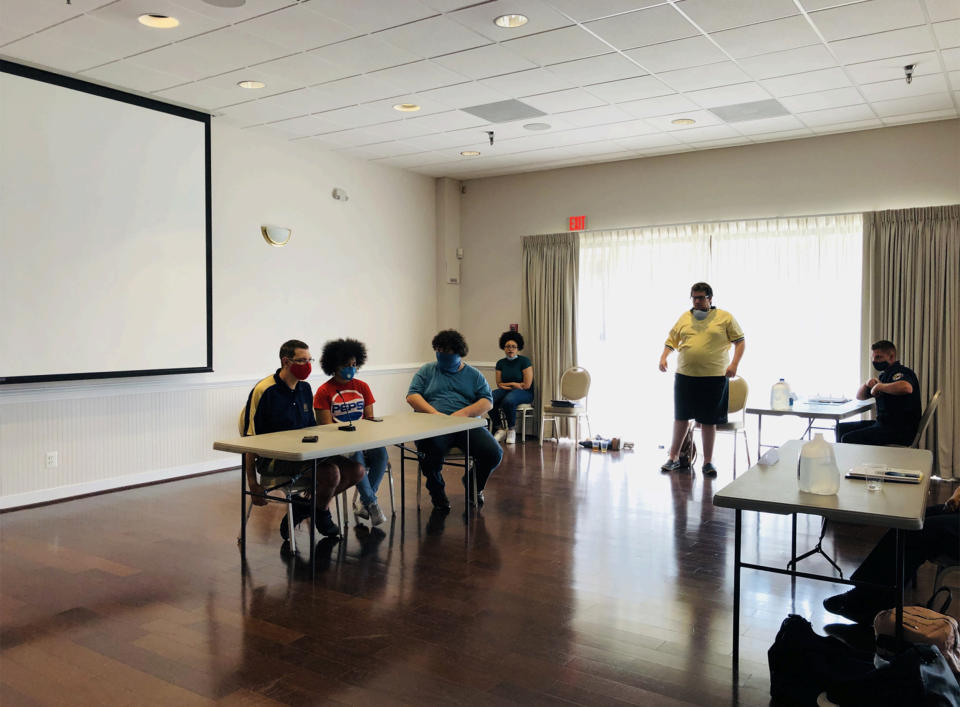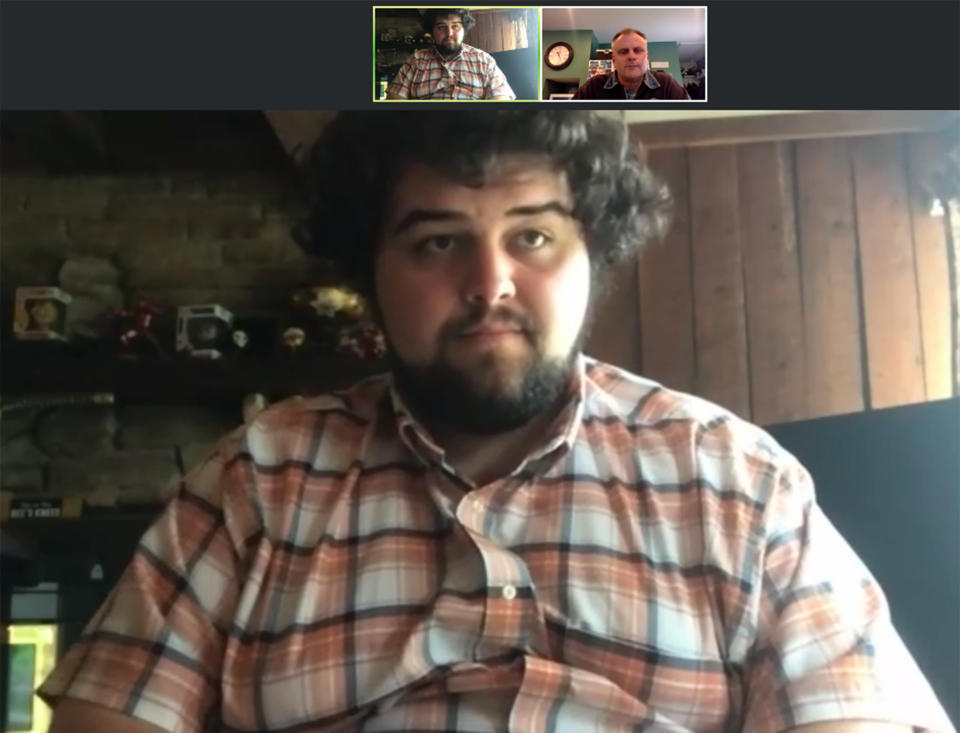How people with disabilities are training the police
Ethan Saylor was a 26-year-old with Down syndrome who loved music, movies and animals. His mother describes him as "quite the flirt," a young man bursting with personality who wanted to be seen as cool, like anyone else his age.
And he idolized the police.
So when he died after sheriff's deputies dragged him out of a Maryland movie theater, his family was shocked — and called to action. With their help, people with disabilities are now training police officers to better respond in situations like the one that involved Saylor.
"It was an unspeakable tragedy — and preventable," his mother, Patti Saylor, told TODAY. "I do believe if the law enforcement officers had a better understanding of people with Down syndrome, absolutely he would still be alive."
Her son died in 2013, after three sheriff's deputies who were working as mall security officers approached him at a movie theater in Frederick County, where he had watched "Zero Dark Thirty" and then returned, without a ticket, to watch the movie again. The deputies dragged him out of the theater in handcuffs and he was later pronounced dead at a hospital. His death was ruled a homicide as a result of asphyxia.
Across the country people with developmental disabilities have suffered at the hands of police officers who are not adequately trained to interact with them, according to Lisa Schoenbrodt, a professor of speech language pathology at Loyola University Maryland. A 2016 report even showed that almost half the people who die at the hands of police have some form of disability. In 2018, Schoenbrodt and a colleague started the Learning to LEAD program with the Ethan Saylor Alliance, which was formed to help train members of law enforcement to understand the needs of people with disabilities. Under their latest grant, the program will be called Leading Forward.
So far the program, which hires people with disabilities to role-play various scenarios with first responders in its trainings, has worked with a handful of police and EMS departments throughout Maryland. Their latest series of trainings — now being done virtually due to the coronavirus pandemic — is with the Baltimore City Police Department.

The program provides guidance and teaches skills for working with people who have disabilities, including the importance of avoiding bright lights and noise when approaching someone who may be sensitive to those things, how to address the person with a disability directly instead of those around him or her, and how to use calm and effective language and allow for processing time when asking questions, for example.
It also provides meaningful, paid work for people with disabilities, who serve as self-advocate educators and act out potential scenarios involving police.
"Improv is really the only way to do it," Schoenbrodt said.
One of those educators is Patrick Chaney, who is 23 years old and has autism.
"I was offered the opportunity to help out because of my experience with theater in high school," he said. "I figured that acting is kind of a vital communication skill."
He said working with the police officers and showing them how to interact with people like him is "eye-opening" on many levels.
"It's a fascinating, two-sided experience because not only do police officers get to reach out to the community they're protecting, it's also an opportunity for individuals with IDDs (intellectual and developmental disabilities) to be a part of the change we want to see in the world," he said.

So far the program is only in Maryland but there are similar trainings elsewhere, although not necessarily employing people with disabilities. Both Schoenbrodt and Saylor, who has attended many of the trainings and knows all of the self-advocate educators, stress the need for expansion.
“This is a drop in the bucket,” Saylor said. “If we really want to do this right, we need to see something that is consistent state to state, and a much more comprehensive approach on a national level.”
With police killings at the forefront, many police departments have been considering alternative trainings. Some have started working with therapists to better respond to mental health-related calls, for example. Schoenbrodt knows a program like theirs can change the way authorities view people with disabilities.
"I think when people mention defunding the police, what they're meaning is to look at other ways to provide training," she said. "This is really important: understanding people with disabilities and also people who have mental health crises. We have data that shows that officers have benefited from this type of training."
Saylor is also painfully aware of the parallels between her son's story and what is happening with police today, although she's careful not to detract from the issue as it pertains to Black Americans, including George Floyd, who was killed by an officer in Minneapolis in May.
"I relived it immediately," she said, referring to seeing the video of the officer kneeling on Floyd's neck. "There was no video of Ethan being killed, but there were similar circumstances in the actual way he died. Ethan’s last words were calling for me as well, and so yeah, it brought it right back up."
"I am acutely aware of being a white, middle-class person and the privilege that has brought to me," she said. "But certainly the way Ethan died and the way many Black Americans die at the hands of law enforcement are similar. It's enraging. But we also love and support law enforcement."
Despite the tragic irony, that is exactly why she thinks her son would love the program if he were alive today.
"I think Ethan would just be tickled," she sad. "He could care less about the advocacy, he could care less about the laws, but he would love to be in the room with those police officers. That would be his goal in life. So I feel good."

